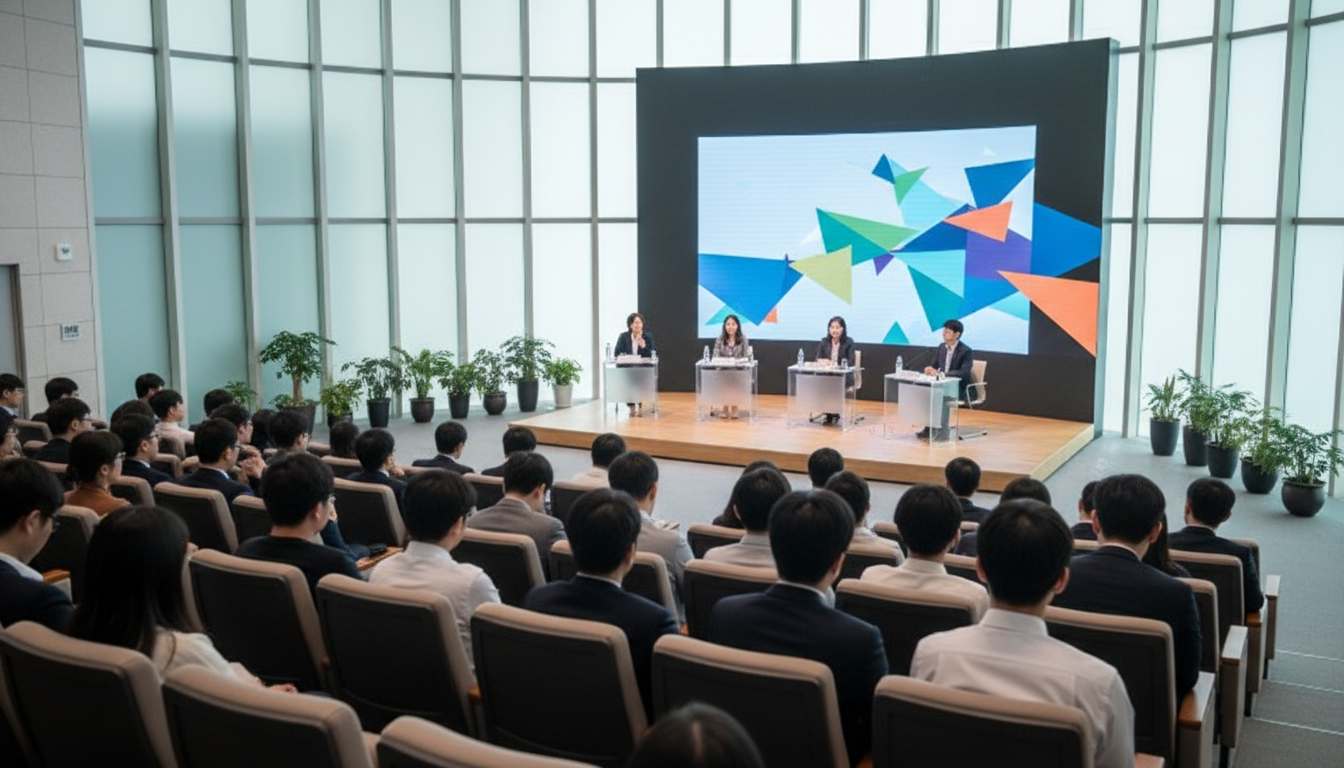#사회
Gwangju Youth Center Hosts Lecture on 'Designing Youth Policy for the Next Decade'

Gwangju Youth Center Successfully Concludes Lecture on 'Designing Youth Policy for the Next Decade'
A significant forum for Gwangju's youth to participate in policy-making and plan their futures has taken place. On October 27, 2025, the Gwangju Youth Center successfully hosted the final lecture of the 'Youth, Spring Again' youth policy discourse series, providing an opportunity to reflect on the past and envision the future of youth policy in the Gwangju region. This particular lecture, themed 'Gwangju Youth Policy: Envisioning the Future of the Next Decade,' was lauded as an important platform for reviewing the past 10 years of Gwangju youth policy and designing the next 10. In a rapidly changing society, in-depth discussions were held to address the various challenges faced by young people and support them in designing a better future. The young participants actively engaged, offering diverse opinions on the future direction of Gwangju youth policy. Im Myung-gyu, Director of the Gwangju Youth Policy Network, served as the lecturer, diagnosing the past and present of Gwangju youth policy and presenting its future direction. In his lecture, Director Im emphasized that Gwangju was the first city in the nation to attempt a city-level youth policy budget and policy evaluation in 2016, deeming it a pivotal turning point for Gwangju youth policy. At the time, Gwangju City demonstrated a proactive commitment to solving youth issues, contributing to the nationwide spread of youth policies. Director Im also highly valued the establishment of the Youth Policy Network and the enactment of the Framework Act on Youth, which laid the foundation for youth participation, emphasizing that continuous efforts should be made to expand youth participation in policy-making and reflect their voices in policies. He stressed that young people should be empowered to actively participate in the policy-making process, enabling them to create policies that directly impact their lives. The lecture also highlighted the changes in Gwangju City's youth-related budget. Director Im mentioned that the city's youth-related budget had significantly increased from 28.6 billion won in 2016 to 334.6 billion won in 2025, illustrating the extent of Gwangju City's efforts to address youth issues. The budget increase has enabled practical support for young people in various fields, including job creation, housing assistance, and cultural activities. However, Director Im pointed out that the head of youth policy had been replaced three times in the past four years, with an average tenure of only eight months, emphasizing the importance of policy continuity and expertise. Frequent changes in policy personnel undermine policy consistency and may reduce the effectiveness of youth policy in the long term. Therefore, the need for improvement in the personnel system to ensure stable policy implementation was raised. The lecture also featured an introduction to EU youth policy and overseas youth policy examples, exploring the future direction of Gwangju youth policy. In particular, the examples of the Japanese youth support organizations 'Sodateage Net' and 'K2 International' were used to introduce various programs that promote youth participation and support their independence. These overseas examples have significant implications for Gwangju youth policy and are expected to help develop and apply policies tailored to the local conditions of Gwangju. By benchmarking successful overseas youth policy examples, we should support Gwangju youth to grow and develop in a better environment. Furthermore, the 'Youth, Spring Again' program itself is significant in that it is a youth policy exchange program jointly planned and operated by the Gwangju Youth Center and the Gwangju Youth Policy Network. This cooperation can improve the efficiency of youth policy and contribute to reflecting the diverse opinions of young people in policies. In 2025, 'Youth, Spring Again' focused on 'social structural issues facing the youth generation,' sharing the practical difficulties faced by young people and exploring solutions. This lecture was evaluated as a meaningful opportunity to reflect on the past and design the future of Gwangju youth policy. The Gwangju Youth Center plans to continue to actively gather the opinions of young people and operate various programs to support them in creating a better future. The continued interest and support of the Korean government and Gwangju Metropolitan City will be an important foundation for the bright future of young people. The Gwangju Youth Center will continue to communicate with young people and do its best to reflect their voices in policies. Through this, we will actively support Gwangju youth to grow as leaders of society and contribute to the development of the local community. We hope that Gwangju youth policy will continue to develop and positively impact the lives of young people. Based on the various opinions raised through this lecture, continuous efforts are needed to further develop Gwangju youth policy and provide practical assistance to the lives of young people.#gwangju youth policy#gwangju youth center#youth policy network#youth basic law#youth#dasi bom (new spring/restart)#youth policy budget#policy evaluation
